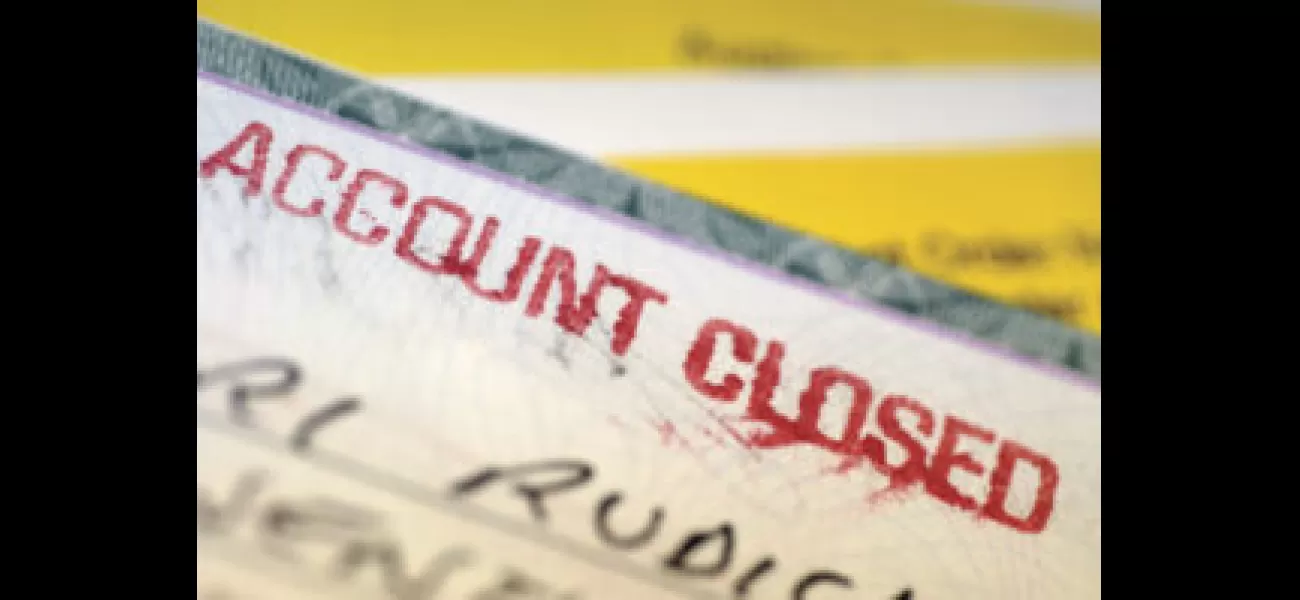40% of workers in the sex-related industry have had their bank accounts closed.
Decriminalizing sex work is a racial justice issue, needing solutions to underlying causes of vulnerability.
November 28th 2023.

Banking access has been an issue for the entire sex work community since the 1960s, but BIPOC sex-related industry workers remain with fewer and often less attractive options for financial stability. As reported by The New York Times, customer bank accounts are being shut down without due process, an occurrence that sex workers have lived under the threat of for a long time.
The criminalization of consensual sex work has caused financial censorship and a lack of accountability by tech platforms, which disproportionately harms Black and Brown communities. PayPal and Venmo have a history of closing random accounts of sex workers and small businesses in the adult industry without explanation, as seen in a May report by the Free Speech Coalition. The report showed that nearly two-thirds of respondents working in the adult industry have lost access to a bank account or financial service, and 40 percent of those respondents experienced account closures in the past year.
Even in 2021, companies like MasterCard are enforcing restrictions on adult content. They asked for adult content to be reviewed by hosting sites before publishing, and for sellers to present documented age and identity verification. In the same year, OnlyFans announced a ban on sexual content, but it was quickly reversed following backlash from content creators.
However, many sex workers are still struggling to get paid, as companies like Mastercard have been unduly influenced by anti-porn and anti-sex work groups. Angela Jones, a sex work scholar from New York, said that these activists are using anti-trafficking discourse to target all forms of commercial sex. It is essential to realize that the goal of the anti-porn movement is to deplatform all sex workers, and advocates are calling the decriminalization of sex work a racial justice issue.
Black women sex workers are navigating in a space where racism and sexism intersect, and BIPOC sex workers as a whole remain exploited while financial discrimination limits their access to other rights. As a result, sex workers are striving to support themselves through proactively saving money and finding alternative ways for compensation.
In Sex Workers, Psychics, and Numbers Runners, author Lashawn Harris argued that the “underground economy” helped Black women rise to the top during the 20th century. Despite the security and mobility this labor offered, Black women were more likely to experience the “conspicuous and hidden dangers associated” with such volatile labor opportunities.
The criminalization of consensual sex work has caused financial censorship and a lack of accountability by tech platforms, which disproportionately harms Black and Brown communities. PayPal and Venmo have a history of closing random accounts of sex workers and small businesses in the adult industry without explanation, as seen in a May report by the Free Speech Coalition. The report showed that nearly two-thirds of respondents working in the adult industry have lost access to a bank account or financial service, and 40 percent of those respondents experienced account closures in the past year.
Even in 2021, companies like MasterCard are enforcing restrictions on adult content. They asked for adult content to be reviewed by hosting sites before publishing, and for sellers to present documented age and identity verification. In the same year, OnlyFans announced a ban on sexual content, but it was quickly reversed following backlash from content creators.
However, many sex workers are still struggling to get paid, as companies like Mastercard have been unduly influenced by anti-porn and anti-sex work groups. Angela Jones, a sex work scholar from New York, said that these activists are using anti-trafficking discourse to target all forms of commercial sex. It is essential to realize that the goal of the anti-porn movement is to deplatform all sex workers, and advocates are calling the decriminalization of sex work a racial justice issue.
Black women sex workers are navigating in a space where racism and sexism intersect, and BIPOC sex workers as a whole remain exploited while financial discrimination limits their access to other rights. As a result, sex workers are striving to support themselves through proactively saving money and finding alternative ways for compensation.
In Sex Workers, Psychics, and Numbers Runners, author Lashawn Harris argued that the “underground economy” helped Black women rise to the top during the 20th century. Despite the security and mobility this labor offered, Black women were more likely to experience the “conspicuous and hidden dangers associated” with such volatile labor opportunities.
[This article has been trending online recently and has been generated with AI. Your feed is customized.]
[Generative AI is experimental.]
0
0
Submit Comment





